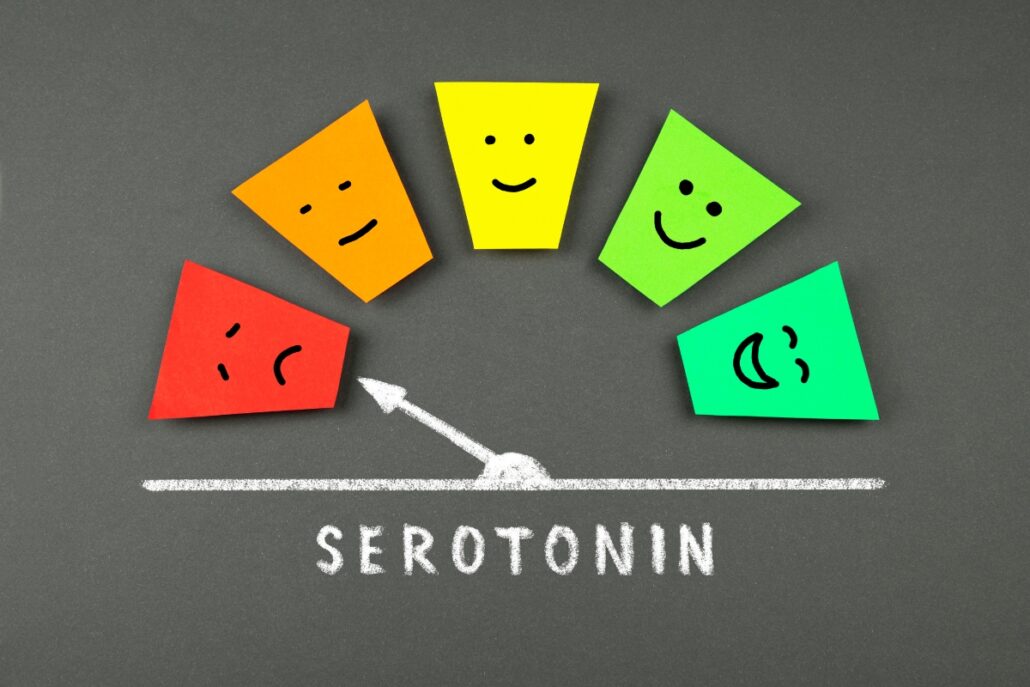Everyone feels stress from time to time. A little stress can be a good thing, helping us stay alert and face everyday situations. However, if you often feel trapped, worried, have shortness of breath, or have ongoing stress that does not go away, you may wonder if something is amiss. While it’s fairly obvious that your environment can play a role in developing a stress disorder, what role do your genes play in this stress response?
The Role of the SLC6A4 Gene in the Acute Stress Response
Your body’s stress response can be classified as acute or chronic.
- Acute stress is the immediate reaction your body has to a stressful situation…think the fight or flight system.
- Chronic stress refers to a prolonged fight or flight response that, if left unchecked, can have a negative impact on the mind and body.
Your body’s stress response is regulated by hormones and neurotransmitters, which are chemical messengers in the brain. Serotonin is one of the neurotransmitters involved in mood regulation and stress, and the SLC6A4 gene is one way the body regulates the availability of serotonin in the brain.
When faced with an acute stressful situation, your body releases cortisol and other chemicals that prepare you to fight the danger, protect yourself, or flee. Normally, when the stressful event ends, your body stops releasing cortisol and slowly returns to equilibrium. However, variations in the SLC6A4 gene have been associated with disruptions in this cycle.
A SLC6A4 Gene Mutation
Changes in the SLC6A4 gene, also called variants or mutations, can affect how your body responds to an immediate stressor. For example, if you have low-activity variants of SLC6A4, you may be more reactive to a stressful situation. This may be due to an elevated level of cortisol and delayed return to normal levels after the stress has subsided.
However, it’s important to note that while these gene variants may be associated with an altered stress response, they do not produce stress, or cause stress disorders.
Tips to Relieve Stress Naturally
If you face high stress levels, there are several ways you can lower stress in your daily life.
- Try breathing exercises – This can be a powerful tool to reduce stress and anxiety. For example, box breathing is a technique that can help you relax by taking slow, deep breaths.
- Eat a healthy diet – An unhealthy diet can result in increased stress levels and other health problems, while a balanced diet can help your body manage the effects of stress.
- Limit caffeine – Drinking several cups of coffee every day can increase stress. High doses of caffeine can even contribute to anxiety.
- Increase physical activity – Staying active can also boost your mood and relieve stress. About 30 minutes of daily physical activity can make you healthier and happier.
- Seek social support – Spending time with friends and loved ones can reduce stress. Social support can provide a sense of community and belonging, and increase resilience in stressful situations.
The Role of SLC6A4 Gene in SSRI Response
Variants in the SLC6A4 gene may not only impact how stressed you feel, but can also affect how your body responds to certain medications.
A SLC6A4 gene mutation can affect your response to a class of antidepressants called Selective Serotonin Reuptake Inhibitors or SSRIs such as:
- citalopram (Celexa)
- fluoxetine (Prozac)
- sertraline (Zoloft)
- escitalopram (Lexapro)
- paroxetine (Paxil)
These medications are often used to treat conditions such as depression, anxiety, and stress disorders. They act by inhibiting the serotonin transporter, allowing serotonin to remain in the synapse for longer. This process leads to improvements in mood and anxiety for many patients after a few weeks of treatment.
However, if you have SLC6A4 gene variants, SSRIs may be less likely to reduce symptoms and/or more likely to cause side effects. Knowing this information will help your healthcare provider make a more informed treatment recommendation.
Pharmacogenetic Testing
The Genomind Pharmacogenetic test looks at 26 genes related to mental health treatment, including the SLC6A4 gene. It provides guidance across 10+ mental health conditions and 130+ medications to help clinicians determine:
- Which medications may be more or less likely to be effective
- Which medications may be more or less likely to cause side effects
- How you metabolize medications for personalized dosing guidance
The Genomind PGx test can be done at a clinician’s office—or from the comfort of your home. It requires a prescription, and Genomind can help connect you with a verified Genomind provider near you. Get started here.

